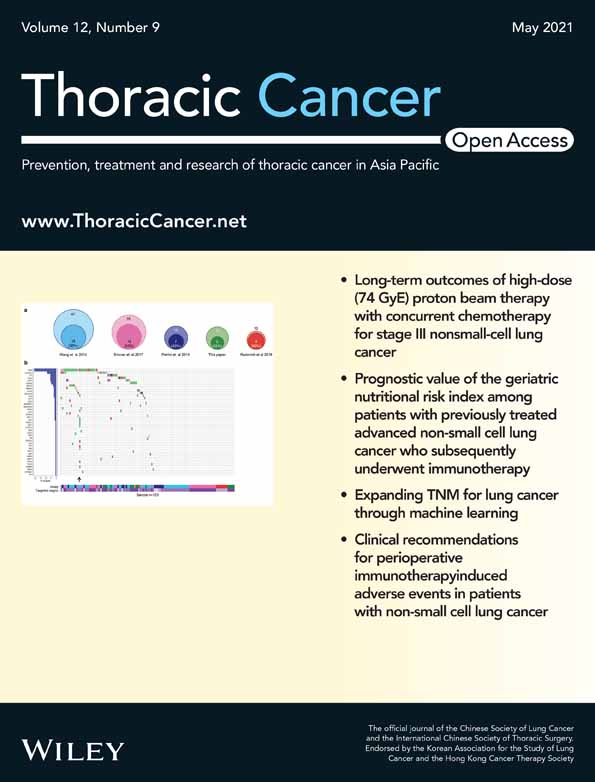Biglycan, tumor endothelial cell secreting proteoglycan, as possible biomarker for lung cancer
Funding information: Grants from Japan Agency for Medical Research and Development, Grant/Award Numbers: JP18ck0106198h0003, JP19ck0106406h0002; JSPS Grants-in-Aid for Scientific Research, Grant/Award Numbers: JP18H02891, JP18K09715; Japan Society for the Promotion of Science
Abstract
Objectives
In lung cancer, surgery remains the most curative treatment and limited resection is beneficial for patients with low cardiopulmonary function and low malignancy tumors. However, there are no biomarkers of low malignancy to select candidates for limited resection without compromising the outcome of treatments. Recently we identified biglycan (BGN) as a tumor endothelial cell (TEC) marker that is associated with tumor progression in various cancers. In this study, we analyzed the association between BGN expression in TECs in lung cancer and cancer progression in patients.
Materials and Methods
First, we performed immunohistochemistry of BGN with resected lung tumor tissues of 155 patients who had undergone thoracic surgery and analyzed the correlation between BGN-positive vessel density in primary lung tumors and clinicopathological factors. Second, we measured the BGN levels in preoperative serum of other 46 patients with lung cancer by ELISA, and analyzed the correlation between BGN expression in tumor tissues and blood BGN levels.
Results
High BGN expression in the TECs was significantly associated with T factor, and was a significant negative predictor. BGN levels in preoperative serum of 46 patients with lung cancer was significantly correlated with BGN expression in the TECs. Preoperative serum BGN level was significantly lower in healthy volunteers and less invasive adenocarcinoma than in invasive adenocarcinoma and other lung carcinomas. These results suggest that low BGN level in preoperative serum in patients with lung cancer might indicate low malignancy.
Conclusions
BGN can be a potential biomarker for lung cancer.
CONFLICTS OF INTEREST
The authors have no financial conflicts of interest to disclose concerning the study.




